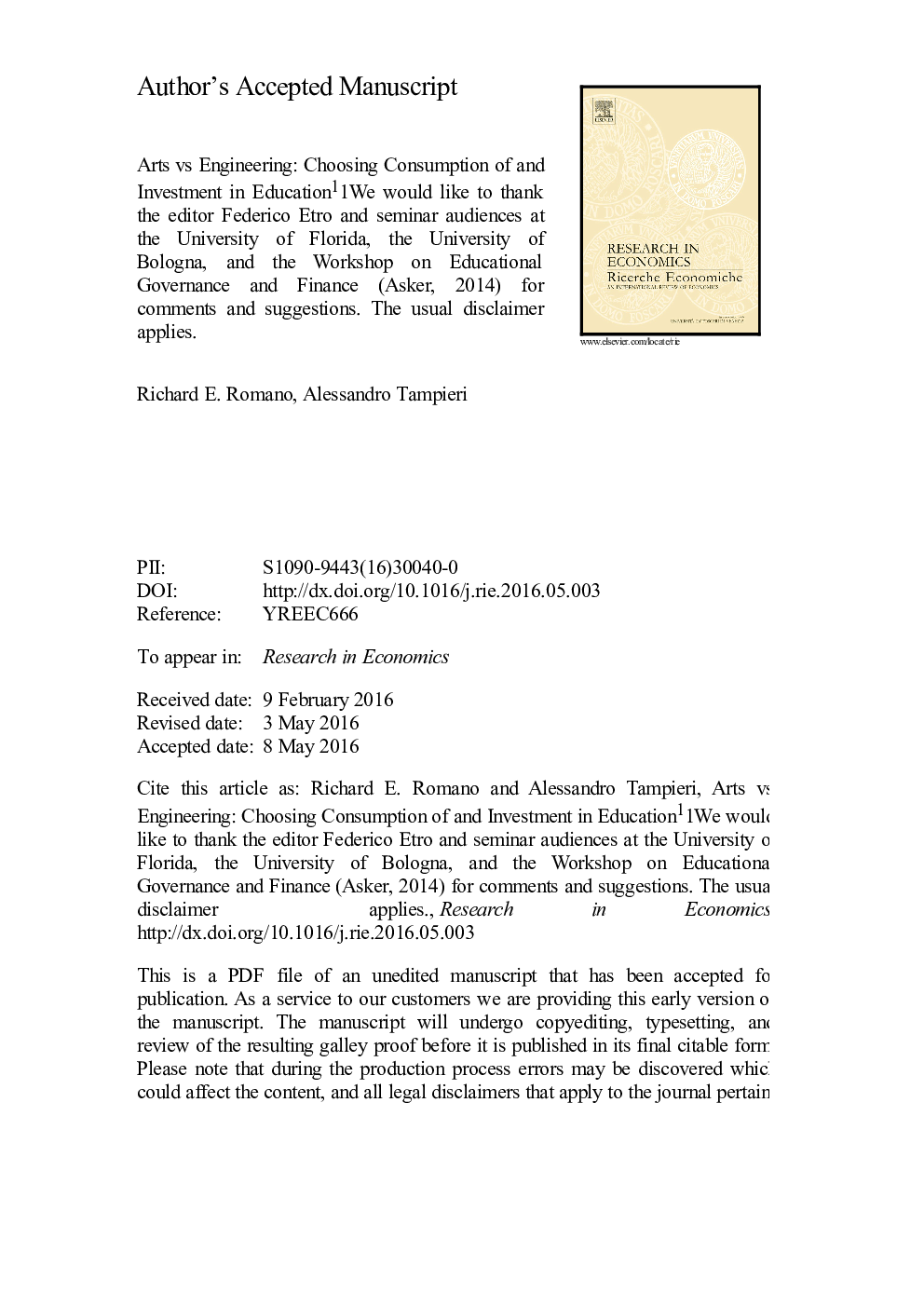| Article ID | Journal | Published Year | Pages | File Type |
|---|---|---|---|---|
| 5103811 | Research in Economics | 2016 | 39 Pages |
Abstract
We develop a model in which students choose their college coursework based on both investment and consumption incentives. These education decisions are socially inefficient. This result is driven by the fact that students do not consider an externality in the working environment of acquiring education for investment purposes. Regulated tuition fees have more potential to induce socially optimal outcomes than regulating levels of education given information constraints. The model can help explain several empirical regularities in the education literature.
Keywords
Related Topics
Social Sciences and Humanities
Economics, Econometrics and Finance
Economics and Econometrics
Authors
Richard E. Romano, Alessandro Tampieri,
